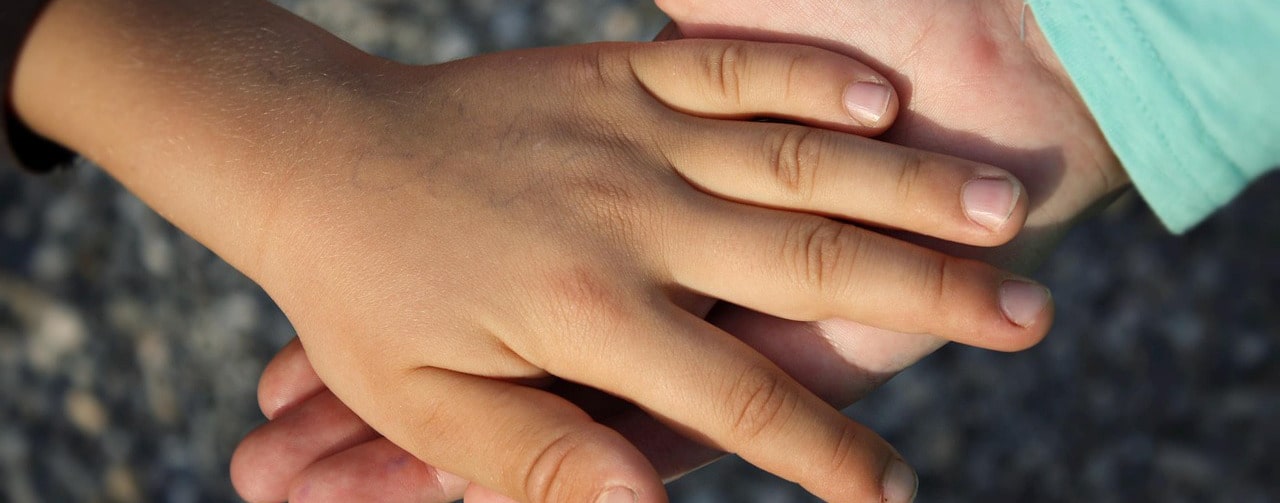Empathy: The Way We Connect
One of the main reasons people seek help from therapists is to mend their relationships. When loved ones are in conflict, the tension can trigger depression and anxiety, and when we feel rejected and disconnected, our self-esteem suffers. The need to belong and to feel understood are basic human needs for us all. Empathy plays a critical role in filling this need and healing relationships.
Empathy can be defined as the experience of understanding someone else’s situation, thoughts, and feelings without judgement. Empathy occurs when we imagine what it is like to be someone else within a particular situation and ask ourselves how we would feel if we were in the same situation.
For example, when we hear a tragic story about the death of a well-loved child, we can imagine what it would be like to be that child’s parents or friend and understand or even feel their grief. If we have had a similar experience, we can more easily empathize and vicariously feel the survivors’ grief.
Empathy encompasses the full range of emotions. We can feel someone else’s joy as much as we can feel someone else’s sorrow. Sometimes making the effort to empathize with another person can result in an eye-opening experience. We may discover something about people that makes the difference between erroneously . judging them and appreciating them, which is why it is important to ask and not assume what someone else is thinking or feeling and why. Everyone has a story worth hearing, and it might be something we could never have guessed. Knowing each other’s stories can help us to forgive and to form agreements that will improve our relationships.
As Bruna Matinuzzi summarizes in What’s Empathy Got to Do with It? “empathy is the oil that keeps relationships running smoothly. The fact that empathy is an important component of effective relationships has been proven: In studies by Dr. Antonio Damasio (outlined in his book: Descartes' Error: Emotion, Reason, and the Human Brain), medical patients who had damage to part of the brain associated with empathy showed significant deficits in relationship skills, even though their reasoning and learning abilities remained intact.”
Thankfully, empathy can be learned, and deficits can be overcome. There are many ways to improve empathy:
- Become absorbed in someone else’s story. Listen without judging or interrupting.
- Watch a movie full of drama or humor, with 100% attention and no distractions. Discuss the movie with others.
- Read fiction and imagine what the characters are feeling. Discuss the book with others.
- Play games that directly interact with others who are expressing their thoughts and feelings, such as conversation and role play games.
- Meditate to calm your mind and increase your awareness of your own and others’ emotions.
Empathy skills can also be developed during therapy sessions in which therapists assist families in improving the way they communicate and listen to each other, placing the emphasis on understanding instead of blaming and on forming agreements that will help each member get their needs met.
Everyone needs to feel understood, and that understanding can be the beginning of loving relationships and the remedy that heals estranged relationships. We don’t need to agree on everything, but we can agree to disagree and keep our relationships intact when we make the effort to understand.References
Boyles, Salynn (2008, December). Happiness is Contagious. Retrieved from http://www.webmd.com/balance/news/20081204/happiness-is-contagious.
Ekman, Paul . Survival of the Kindest. Retrieved from http://www.mindful.org/in-body-and-mind/psychology/survival -of-the-kindest.
Goleman, Daniel (2007, June). Three Kinds of Empathy: Cognitive, Emotional, Compassionate. Retrieved from http://www.danielgoleman.info/three-kinds-of-empathy-cognitive-emotional-compassionate.
Martinuzzi, Bruna (2006-2014). What’s Empathy Got to Do with It? Retrieved from http://www.mindtools.com/pages/article/newLDR_75.htm
Pedersen, Traci (2012, October). Specific Brain Region Tied to Empathy. Retreived from http://psychcentral.com/news/2012/10/26/empathy-spot-located -in-the-brain/46694.html
Reynolds, Marcia (2011, November). Give Your Empathy a Boost. Retrieved from http://www.psychology today.com/blog/wander-woman/201111/give-your-empathy-boost.
Riggio, Ronald, E. (2011, August). Are You Empathic? 3 Types of Empathy and What They Mean. Retrieved from http://www.psychologytoday.com/blog/cutting-edge-leadership/201108/are-you--empathic.


